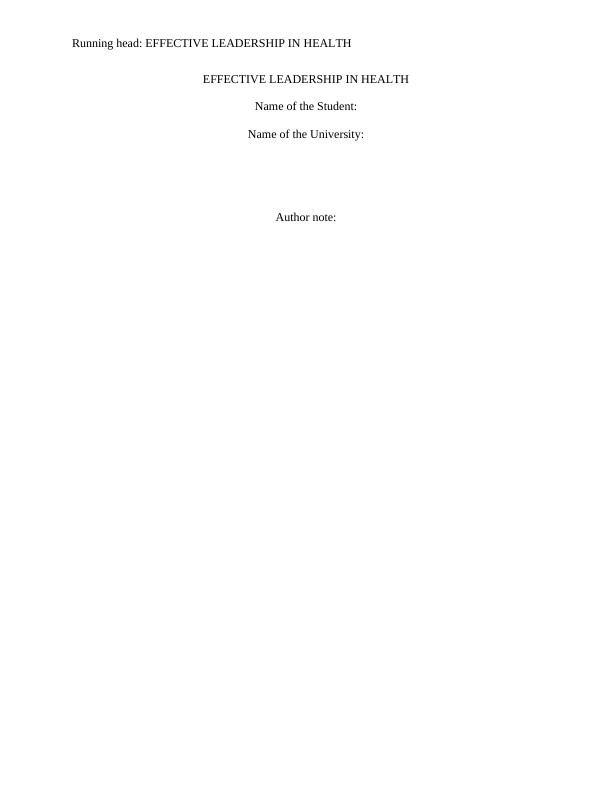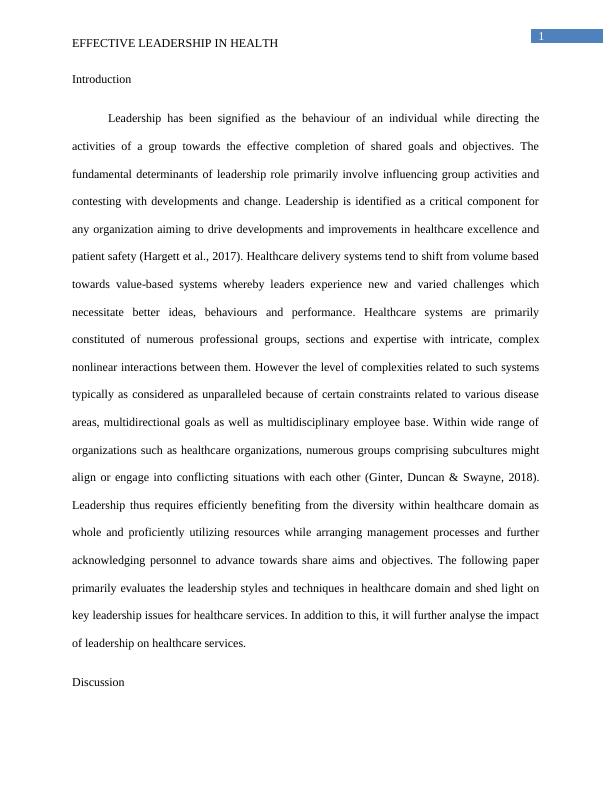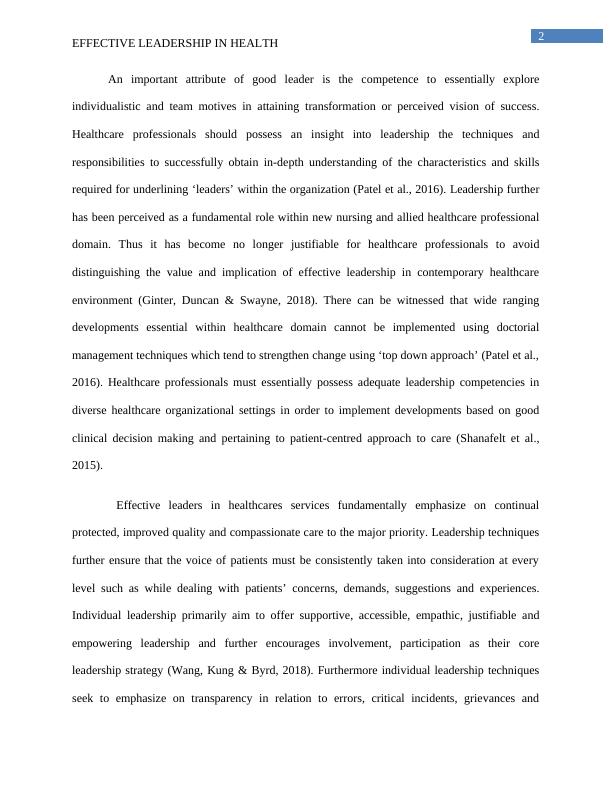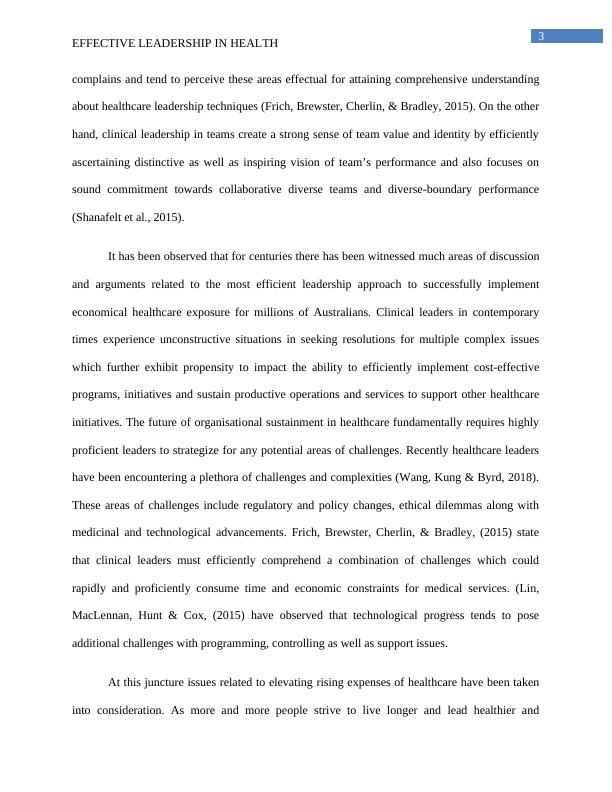Effective Leadership in Healthcare: Styles, Techniques, and Challenges
16 Pages4388 Words57 Views
Added on 2023-06-05
About This Document
This paper discusses the importance of effective leadership in healthcare, exploring leadership styles and techniques, and shedding light on key leadership issues for healthcare services. It also analyses the impact of leadership on healthcare services, including challenges related to rising healthcare expenses, ethical dilemmas, and technological advancements.
Effective Leadership in Healthcare: Styles, Techniques, and Challenges
Added on 2023-06-05
ShareRelated Documents
End of preview
Want to access all the pages? Upload your documents or become a member.
Introduction of Leaflets in an Organization for Patient Better Understanding of His Disease-Diabetes
|24
|6605
|41
Health Human Resource Management
|5
|768
|94
Effective Leadership in Health: Importance and Styles
|12
|2966
|300
Health Care Organizational Planning for Banner Healthcare and Texas Medical Center
|16
|1284
|315
Clinical Leadership and Management | Essay
|4
|891
|23
Health Care Leadership
|11
|3443
|465




